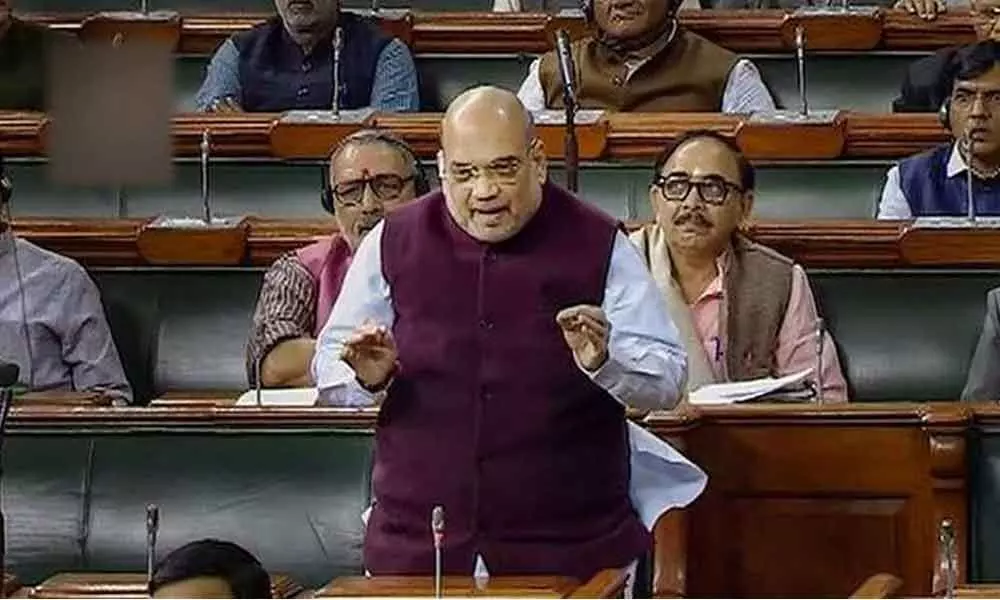Citizenship Amendment Bill in Lok Sabha: All you need to know

The Citizenship Amendment Bill is being tabled by Union Home Minister Amit Shah in the Lok Sabha today.
The Union Minister for Home Affairs, Amit Shah, has tabled the Citizenship (Amendment) Bill 2019, in Lok Sabha today. The amendment of the bill seeks to relax the conditions for granting Indian citizenship to non-Muslim refugees from neighbouring countries like Bangladesh, Pakistan and Afghanistan.
Laws as per the current in the Citizenship Act:
1. The present Citizenship Act does not recognize the claims of illegal migrants for citizenship.
2. As per the existing law under the Citizenship Act, a person must be a resident in India for the period of 12 months immediately preceding the date of application, and also should have been residing in India for 11 out of the 14 years preceding the said period of 12 months.
The government seeks to amend this Act, citing reasons that Hindus, Sikhs, Buddhists, Parsis, Jains and Christians who are considered minorities in neighbouring countries of Pakistan, Bangladesh and Afghanistan have been fleeing to India due to fear of persecution in their respective countries.
What is the proposal for amendment?
1. As per the bill, Hindus, Sikhs, Buddhists, Parsis, Jains and Christians who migrated to India without travel documents from Pakistan, Bangladesh and Afghanistan on or before December 31, 2014 will not be regarded as illegal migrants. This is proposed to be done by inserting a new proviso to Section 2(1)(b) of the Citizenship Act 1955.
2. The Citizenship Amendment Bill proposes to relax the condition for acquisition of citizenship by naturalization for non-Muslim migrants from these countries.
3. This Bill proposes to make non-Muslim migrants from Pakistan, Bangladesh and Afghanistan eligible for citizenship by naturalization if they can establish their residency in India for five years instead of existing eleven years.
The bill further states that: "The Constitutions of Pakistan, Afghanistan and Bangladesh provide for a specific state religion. As a result, many persons belonging to Hindu, Sikh, Buddhist, Jain, Parsi and Christian communities have faced persecution on grounds of religion in those countries. Some of them also have fears about such persecution in their day to day life where right to practice, profess and propagate their religion have been obstructed and restricted. Many such persons have fled to India to seek shelter and continued to stay in India even if their travel documents have expired or they have incomplete or no documents."








